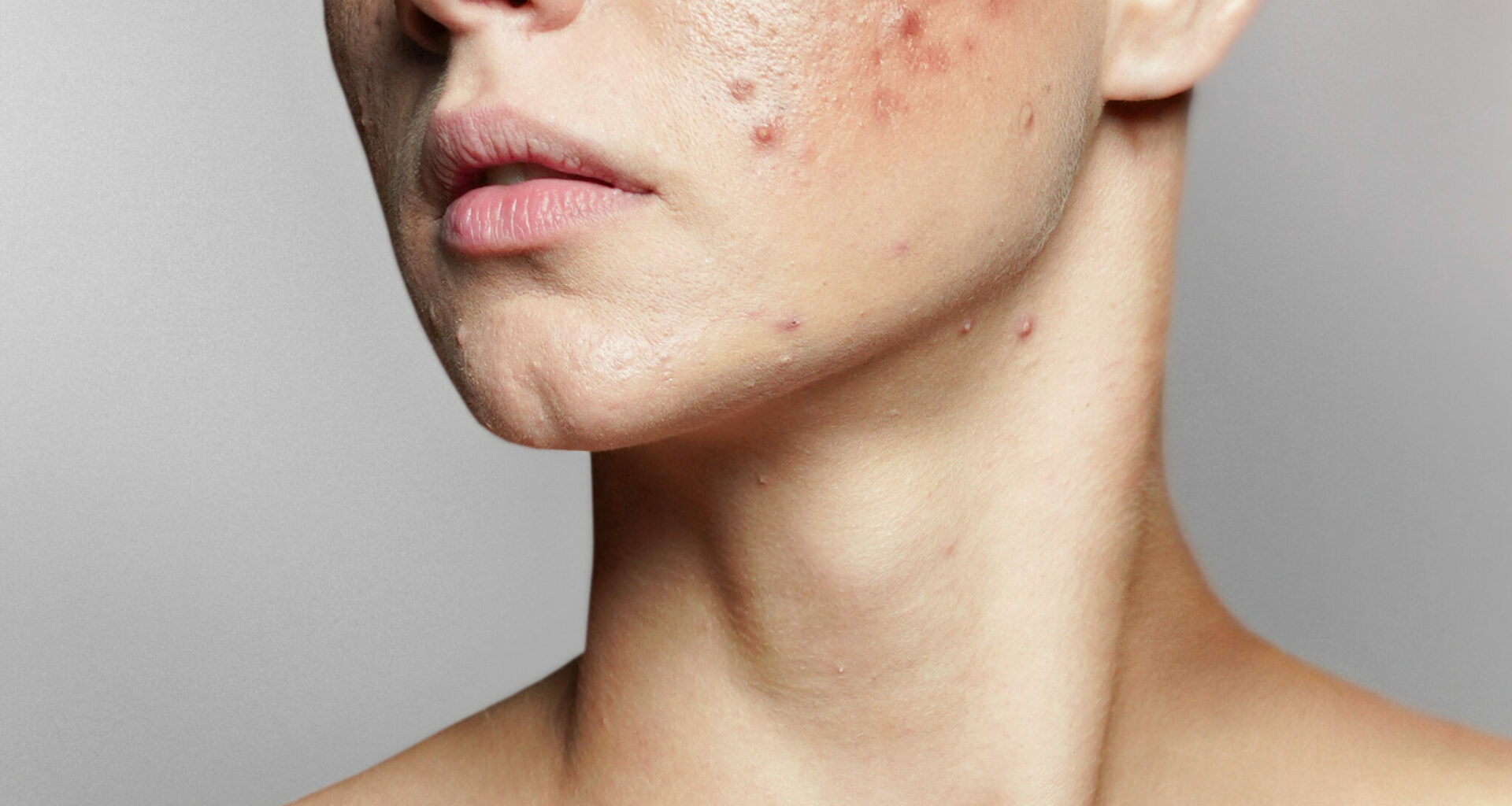
Hormonal acne in women
Hormonal fluctuations occur throughout a woman’s life as part of sustaining fertility and aging. Adult acne in women is often hormonal, with outbreaks more likely to develop:
- at puberty
- around the time of menstruation
- during pregnancy
- around the time of menopause
- during periods of low estrogen levels
- as a result of an underlying condition such as Polycystic ovary syndrome
Hormonal acne treatments
Treatment for mild hormonal acne
If you have a mild case of hormonal acne, then over-the-counter (OTC) topical treatments can prove to be efficient. Retinoids, natural acids (AHAs and BHAs) and benzoyl peroxide may help relieve the symptoms and minimise the appearance of acne scars. These can be purchased without a prescription.
In some cases, mild acne can also be addressed using natural remedies. Green tea and tea tree oil have anti-inflammatory properties, although there isn’t sufficient evidence to validate their efficiency against hormonal acne.
Treatment for moderate and severe acne
If you break out in cystic lesions and nodules, this means that your hormonal acne is more severe and topical medication won’t be enough to reach as deep into the skin. In such cases, oral medications and specialist treatments may be prescribed to address the root cause and symptoms:
- oral antibiotics
- oral contraceptives
- hormonal therapy
- lasers and blue light therapy
- chemical peels

When to see a dermatologist?
Consult your dermatologist if:
- The products you have tried haven’t worked
- You have severe acne lesions (painful cysts and nodules, or lots of papules and pustules on your face, chest and back)
- The risk of scarring is high – you have large cysts and /or may have observed acne scars from older lesions
- You’ve suffered from sudden breakouts – this could be the symptom of an underlying condition or hormonal imbalance
How to prevent hormonal acne?
Although there’s not much you can do to control your hormonal fluctuations, there are steps you can take to protect your skin against hormonal acne. These practical tips may help with the problem:
- Wash your face 1-2 times a day and after each workout using a gentle cleanser. You can find a selection of dermatologist-approved cleansers here.
- Use luke warm water when rinsing the skin to avoid heat irritation.
- Avoid rubbing or tugging at your skin and picking at your spots as this may increase the chance of acne scarring.
- Avoid makeup where possible or apply in light layers, using non-comedogenic mineral pigments.
- Avoid sun beds and wear a broad-spectrum SPF of at least 30 to avoid sunburn and hyperpigmentation.

Acne treatment at sk:n
At sk:n, we treat 4,500 acne sufferers every year and know how much distress acne brings.
Regardless of the severity of your condition, we can help clients with all types of acne by providing bespoke solutions to suit their skin.
We have the largest network of expert doctors who are able to recommend highly effective treatments and products, as well as prescribe the right medication required.
At sk:n, we have the solutions to solve your acne concerns, for skin you love again.
From scientfically-formulated skincare for acne, to skin peels, we’ll recommend the right treatment plan for you.
Related Conditions
Request a callback
One of our friendly sk:n advisors will call you to book your consultation.
- More than 450 consultants, doctors, nurses and medical practitioners
- Regulated by the Care Quality Commission, Health Inspectorate Wales and Health Improvement Scotland
- Partner of the NHS
- Rated excellent by our clients on Trustpilot
- Strict safety and care protocols


